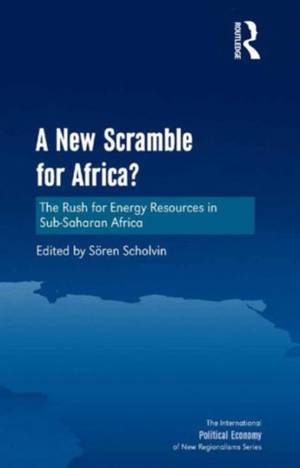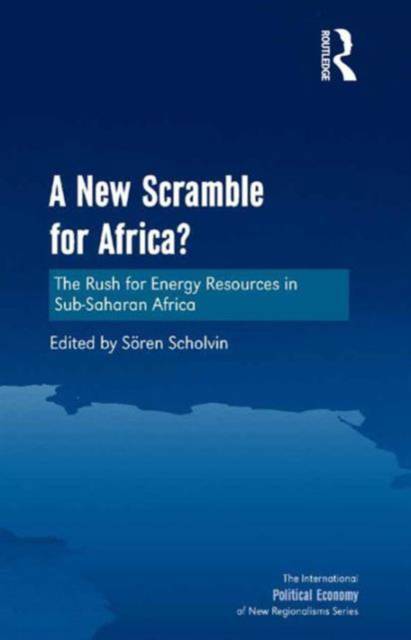
Je cadeautjes zeker op tijd in huis hebben voor de feestdagen? Kom langs in onze winkels en vind het perfecte geschenk!
- Afhalen na 1 uur in een winkel met voorraad
- Gratis thuislevering in België vanaf € 30
- Ruim aanbod met 7 miljoen producten
Je cadeautjes zeker op tijd in huis hebben voor de feestdagen? Kom langs in onze winkels en vind het perfecte geschenk!
- Afhalen na 1 uur in een winkel met voorraad
- Gratis thuislevering in België vanaf € 30
- Ruim aanbod met 7 miljoen producten
Zoeken
€ 290,45
+ 580 punten
Omschrijving
Global energy consumption will increase rapidly in the next decades. The discrepancy between demand and supply is worrisome within the old and new cores of the world-economy. Sub-Saharan Africa meanwhile possesses vast potential for energy resources to be further exploited. Whilst the Global North is a traditional player in the sub-Saharan energy sector, new actors from emerging economies - especially China's state-owned enterprises but also Brazilian, Indian and South African giants - have entered what appears to be a scramble for the largely untapped energy resources of the region. This book is the first to bring together comparative perspectives on: Â- The strategies of state and non-state actors involved in the exploitation of sub-Saharan energy resources. Â- The potential and pitfalls of new forms of cooperation on energy southwards of the Sahara. Â- The domestic opportunities and challenges of the present energy resource boom. Dynamics on the international level are brought together with local developments to provide up-to-date insights on the scramble for energy resources in sub-Saharan Africa. This book also advances a materialist approach applicable in geographical and political-scientific research, showing that much insight can be gained by concentrating on the material environment that shapes economic and political phenomena.
Specificaties
Betrokkenen
- Auteur(s):
- Uitgeverij:
Inhoud
- Aantal bladzijden:
- 178
- Taal:
- Engels
- Reeks:
Eigenschappen
- Productcode (EAN):
- 9781472430762
- Verschijningsdatum:
- 28/01/2015
- Uitvoering:
- Hardcover
- Formaat:
- Genaaid
- Afmetingen:
- 156 mm x 234 mm
- Gewicht:
- 435 g

Alleen bij Standaard Boekhandel
+ 580 punten op je klantenkaart van Standaard Boekhandel
Beoordelingen
We publiceren alleen reviews die voldoen aan de voorwaarden voor reviews. Bekijk onze voorwaarden voor reviews.









